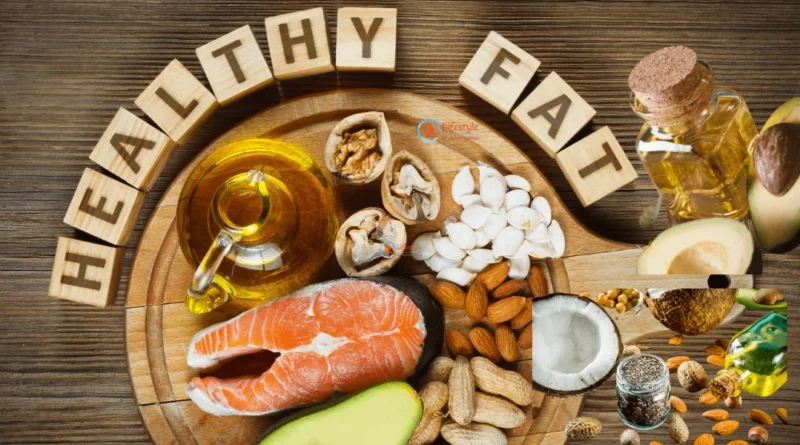Fat: The Good, the Bad, and the Ugly of Fat
Fat is one of the three essential macronutrients that our bodies need to survive, along with carbohydrates and protein. Fat is often misunderstood and demonized a bad reputation in the realm of nutrition and health. But the truth is, fat is an essential nutrient that our bodies need to survive. Fat provides energy, helps regulate our hormones, and supports our immune system. We’ve been taught to believe that all fats are the enemy, but the truth is far more complex. Fats are an essential part of our diet and are crucial for our overall well-being.
However, not all fats are created equal. Some fats are better for our health than others. In this article, we will explore the good, the bad, and the ugly of fat so that you can make informed choices about what to eat.
The Good: Unsaturated Fats
Good fats are unsaturated fats. Unsaturated fats are liquid at room temperature and come from plant-based sources, such as avocados, nuts, seeds, and olive oil. Unsaturated fats have been shown to lower cholesterol levels, improve heart health, and reduce the risk of chronic diseases such as heart disease, stroke, and type 2 diabetes.
Not all fats are created equal. There are good fats, and at the top of the list are unsaturated fats. These fats come in two main types: monounsaturated fats and polyunsaturated fats.
Monounsaturated Fats:
These fats are liquid at room temperature and typically remain in a liquid state even when refrigerated. They are heart-healthy and can help reduce bad cholesterol levels, decreasing your risk of heart disease. Foods rich in monounsaturated fats include olive oil, avocados, and nuts.
Polyunsaturated Fats:
Polyunsaturated fats also stay in a liquid state at various temperatures. They include Omega-3 and Omega-6 fatty acids, which are essential for brain function and cell growth. Sources of polyunsaturated fats include fatty fish, walnuts, and flaxseeds.
Some examples of good fats:
Monounsaturated fats: olive oil, avocado oil, peanut oil, canola oil
Polyunsaturated fats: flaxseed oil, soybean oil, corn oil, walnut oil
Omega-3 fatty acids: fatty fish (such as salmon, tuna, and mackerel), flaxseed, walnuts, chia seeds
The Bad: Saturated Fats
Bad fats are saturated fats and trans fats. Saturated fats are solid at room temperature and come from animal products, such as meat, poultry, dairy products, and eggs. Trans fats are created when vegetable oils are hydrogenated. Trans fats are found in processed foods, such as fried foods, baked goods, and margarine.
Saturated and trans fats have been shown to raise cholesterol levels, increase the risk of heart disease, and contribute to other chronic diseases.
Some examples of bad fats:
Saturated fats: butter, lard, cream, cheese, red meat, poultry skin
Trans fats: fried foods, baked goods, margarine, shortening
The Ugly: Trans Fats
The ugly fats are partially hydrogenated oils. Partially hydrogenated oils are created when vegetable oils are partially hydrogenated. This process creates trans fats, which are the worst type of fat for our health.
Partially hydrogenated oils are found in many processed foods, such as fried foods, baked goods, and margarine. It is important to avoid processed foods as much as possible in order to reduce your intake of partially hydrogenated oils.
How to Choose the Right Fats for Your Health
When choosing fats for your health, it is important to focus on good fats and limit your intake of bad fats. Good fats should be the main type of fat in your diet. Bad fats should be consumed in moderation, and partially hydrogenated oils should be avoided altogether.
While we’ve categorized fats into good, bad, and ugly, the key to a healthy diet is moderation and balance. Consuming a variety of fats in appropriate quantities is vital. Rather than completely avoiding fats, opt for healthier alternatives and limit your intake of saturated and trans fats.
Here are some tips for choosing the right fats for your health:
- Choose unsaturated fats over saturated fats and trans fats.
- Include a variety of good fats in your diet, such as olive oil, avocados, nuts, seeds, and fatty fish.
- Limit your intake of processed foods, which are often high in bad fats.
- Read food labels carefully and look for hidden sources of trans fats.
- By following these tips, you can make sure that you are getting the right fats for your health.
Conclusion
Fat is an essential nutrient that our bodies need to survive. However, not all fats are created equal. Some fats are better for our health than others. Good fats, such as unsaturated fats, can help to lower cholesterol levels, improve heart health, and reduce the risk of chronic diseases. Bad fats, such as saturated fats and trans fats, can raise cholesterol levels, increase the risk of heart disease, and contribute to other chronic diseases.
We’ve explored the nuances of fats, differentiating between the good, the bad, and the ugly. Understanding these distinctions empowers us to make informed dietary choices for a healthier and happier life.
Note: It is always advisable that you also consult your doctor if you are struggling with any health conditions. Doctors will provide the best guidance knowing your medical condition.
Frequently Asked Questions (FAQs) about Fats
1. What are fats, and why are they important?
Fats are macronutrients that provide a concentrated source of energy. They are essential for absorbing fat-soluble vitamins, protecting organs, and being a structural component of cell membranes.
Fats, also known as ‘fatty acids’ or ‘lipids,’ consist of three molecules bonded together, forming what is called a “triglyceride.” While our bodies produce most of the fats needed, there are essential fats that our bodies cannot produce.
2. How do fats impact my health?
Fats play a crucial role in overall health. Healthy fats support heart health, brain function, hormone regulation, and nutrient absorption. However, excessive consumption of unhealthy fats can lead to various health issues like obesity and heart disease.
3. What are unsaturated fats, and where can I find them in my diet?
Unsaturated fats are considered healthy fats. They include monounsaturated and polyunsaturated fats. Foods like olive oil, avocados, nuts, and fatty fish are rich sources of unsaturated fats.
4. Are all saturated fats bad for me?
While excessive consumption of saturated fats can lead to health problems, not all saturated fats are detrimental. For instance, coconut oil contains medium-chain triglycerides (MCTs) that may have potential health benefits.
5. What are trans fats, and should I avoid them completely?
Trans fats are the unhealthiest fats and should be minimized or avoided. They are often found in processed foods, fried items, and some margarines. They can significantly raise bad cholesterol and increase the risk of heart disease.
6. How can I reduce my fat intake in a balanced way?
Focus on a balanced diet with a variety of foods. Choose lean protein sources, incorporate more fruits and vegetables, opt for low-fat dairy, and limit processed and fried foods.
7. Can fats help me lose weight?
Healthy fats can be part of a weight loss plan. They provide satiety and, when consumed in moderation, can be beneficial. However, it’s crucial to manage portion sizes and total calorie intake.
8. How do fats affect heart health?
Certain fats, like saturated and trans fats, can raise bad cholesterol levels and increase the risk of heart disease. On the other hand, unsaturated fats, especially Omega-3 fatty acids, can support heart health by reducing inflammation and improving cholesterol levels.
9. Can fats affect my skin and hair?
Healthy fats can contribute to glowing skin and luscious hair. Omega-3 fatty acids, found in fish and walnuts, are particularly beneficial for skin health.
10. What’s the role of fats in brain function?
Fats, especially Omega-3 fatty acids, are crucial for brain health and function. They support brain development in infants and can enhance cognitive function in adults.
Also read:
For News related to entertainment visit our entertainment website:
https://www.glamworldtalks.com/




